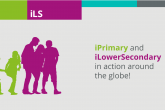
Seb Murray examines the role of high quality teaching, networking and cross-cultural communication in British international schools to set students up for success at university and in their careers.
Sophia Miller’s international school education was a passport to an elite Russell Group university. She attended St. George’s International School, Luxembourg between 2008-2015 and then enrolled at University of Edinburgh, where she is studying linguistics.
Open to different cultures and experiences
“My international upbringing definitely influenced my choice of degree and helped me succeed in it because of the experience of being around lots of different languages growing up,” says Miller. “Going to an international school makes you more open minded to different cultures and experiences.”
She adds that the international school community is an inclusive and supportive environment to be in, especially if you’ve moved away from your home country as a child or teenager – which can be disorientating.
Sophie’s story is common among those who study at British international schools, which are seen by many parents as a way to set their children up for admission to top universities and jobs through high quality teaching and the opportunities they present for networking and cross-cultural communication.
Supporting students
“There is a perception that top international schools give children a better chance to achieve excellent grades and therefore access highly ranked universities and jobs,” says Carole Still, Head of Skills at Coventry University London and a freelance leadership coach. “If a school has great resources, inspires excellence in their pupils and is held to a high standard, it opens up tremendous opportunities for their pupils.”
One area where international schools can expand support for their students is in their transition to university, which can be a challenge for those who are not independent or confident learners, she says. This starts from day one: Still argues that, “too often, we see bright students with good knowledge but who lack independent study skills”.
This problem stems from the use of exams and attainment measures defined by a grading system, she says. “Students are pushed relentlessly towards success. But the brain does not have the capacity of infinite memory.”
“When students learn, purely to pass an exam, their short term memory is activated at the expense of deep learning, which creates new neural networks of knowledge and understanding.”
Instead, Still advocates for a different method: helping students to understand accepted principles, then debating them to spark creativity, asking “what if” and “why” questions.
“The world economy today needs people willing to take responsibility for their own behaviour, who can think creatively, logically and strategically using evidenced based decision making, and who have an equally high capacity to adapt in such a rapidly changing and technology driven world,” she adds.
“To truly understand the routes to new knowledge and have the confidence to search for them is the greatest gift a school can offer its students.”
She adds that schools are having to prepare students for jobs that do not currently exist. “If we do not know what knowledge will be required for future jobs, how can knowledge be the only determinate of success in schools?”
A pathway to the top western universities
Schools should also be helping students with their admission to university. Colin Bell, CEO of the Council of British International Schools, notes that prestigious British international schools brands may help in this regard. He adds that education delivered through the medium of English language is also a natural pathway to the top western universities – not just in the UK – where English is the language of instruction.
“It’s widely celebrated that a high proportion of children at British international schools go on to one of the top universities in the UK and worldwide,” he says.
This is reflected in data from UK university admissions service UCAS, which shows that international students entered British universities in record numbers in the 2018-19 academic year, and the proportion of EU students who were admitted also increased relative to the year before.
“British international schools provide high quality teachers and guidance on university applications and visa requirements, plus an extensive alumni network that is active in providing guidance, inspiration and support in selecting universities,” Bell adds. This is important given that there are over 35,000 undergraduate courses available in the UK alone.
Miller, for example, has been back to St. George’s several times since leaving and there is an alumni network that she taps into too. “However, it’s more for organising meet-ups rather than supporting ex-students,” she says. “It would be good to have a jobs network where the school advertised jobs in Luxembourg to ex-students.”
But, as Still says, the ultimate responsibility for a student’s career rests with the student themselves. “The role their school plays is to give the student the confidence to seek their place in the world, equipped with the knowledge, skills, attitudes and abilities to thrive as agile and global citizens.”

